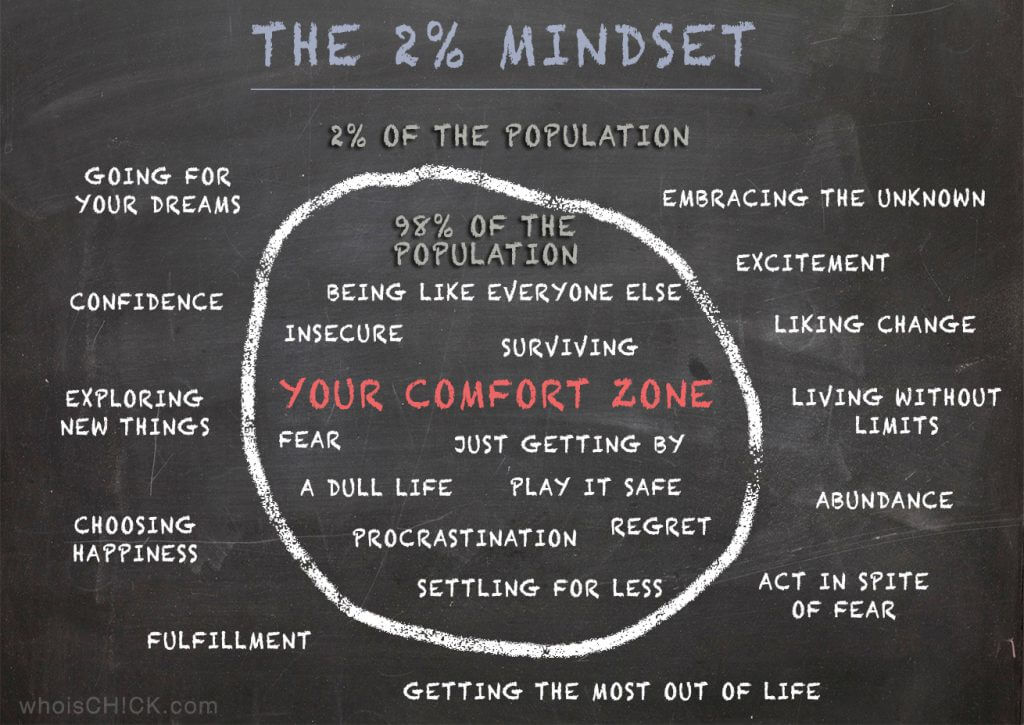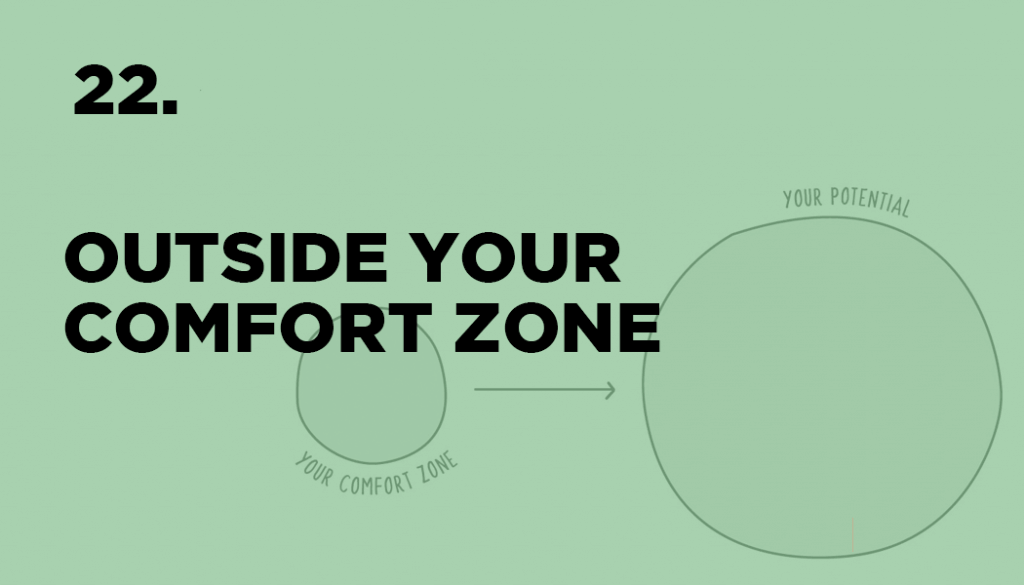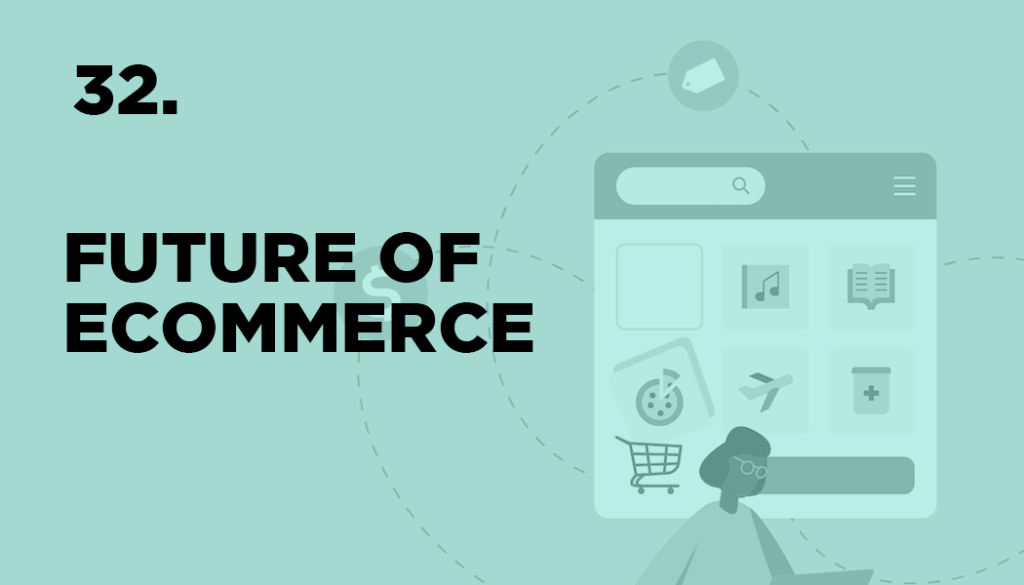The world has become simultaneously more transparent and more unpredictable. We are being increasingly forced to traverse outside of our comfort zones.
But are we mentally able to go outside our comfort zone?
Man can learn nothing except by going from the known to the unknown.
Claude Bernard.
Technology has trained our minds to measure and analyze the majority of actions that we embark on.
For example, driving to a new place, Google Maps shows you exactly where to go and how long it will take to get there.
When you are young, your supposed path is set out for you. Go to school and get a job. At your job, you have tasks to perform each day and metrics to hit. We live in a world where we are constantly planning for a future we can see, which gives us great comfort.

However, this comfort in seeing the future is not helping us to train our minds to deal with the rapidly changing world. The speed at which technology and innovation are creating change is increasing the unknowns one will deal with throughout life.
For example, within 5 years, Uber and Lyft have changed the 100-year-old taxi industry.
“Those seeking a linear journey with less instability can still be successful, but they often struggle to create anything new. We crave certainty but must learn to function without it.”
(Belsky, Scott. The Messy Middle: Finding Your Way Through the Hardest and Most Crucial Part of Any Bold Venture (p. 32).
Our world has become increasingly faster and more complex, and in turn, this makes it more difficult to predict what’s going to happen next. It makes it harder to plan for the future.
Unsurprisingly, that unpredictability creates a need for people and organizations to be far more aware of and responsive to changes in their environment and the world around them.
People and organizations must not be afraid of going outside their comfort and see how invigorating it can be. This is when we grow, evolve, and understand the magic of being alive!
The people and organizations that know how to make decisions when in ambiguous situations, or what I like to call “navigating in the dark,” will be the ones who succeed.
In this article, I will give three tools I have found to help me go outside of my comfort zone and make wise decisions in the face of the unknown.
Believe me; it will become so invigorating to go outside your comfort zones you will start to crave it!
1. Ditch Your Attachments to Hypothesized Conclusions
Get rid of your attachment to an outcome, as most outcomes are far out of your control. Startups, individual businesses, large corporations, investors, and more get attached to the original vision. Then, they risk failing to adapt and change to the present.
They fear failure, which, in turn, makes them hesitant about their next move.
They have to go outside their comfort zone to make their next move. Taking risks, experimenting, and pushing their product into the unknown is what they need to succeed – and it will be invigorating.
There is a Taoist story of an old farmer who had worked his crops for many years and achieved great luck because he embraced the unknowns.
One day his horse ran away. Upon hearing the news, his neighbors came to visit. “Such bad luck,” they said sympathetically.
“Maybe,” the farmer replied.
The following day the horse returned, bringing with it three other wild horses. “How wonderful,” the neighbors exclaimed.
“Maybe,” replied the farmer.
The following day, his son tried to ride one of the untamed horses, was thrown, and broke his leg. The neighbors again came to offer their sympathy for his misfortune.
“Maybe, maybe not, “ answered the farmer.
The day after, military officials came to the village to draft young men into the army. Seeing that the son’s leg was broken, they passed him by. The neighbors congratulated the farmer on how well things had turned out.
“Maybe,” said the farmer.
2. Learn to Act in the Moment
When running a startup, you can see very clearly by the data in real-time whether a product is working or not. When the product is not working, it can be due to a little UI/UX error on the site. For example, users cannot find the sign-up button, or the product is not what the market wants.
In these moments, some teams will fail to make a move – they fear they will make the wrong move or do not have the data to back up the direction to go in.
But in reality, when you work at a startup and bring something new into the world, you will rarely be able to predict the right move. By acting based on your intuition, you are angling toward the right action.
“This scientific basis is resulting in programs that are significantly more reliable than those we wrote in former days when intuition was the only basis of correctness” – Paul Graham.
In the early days of Roomhints, the application went from having 1000s of users writing negative reviews and support tickets that the app didn’t work to the next day, the startup having 50,000 new users overnight who loved the product.
These new users were using the platform completely differently than our team ever expected. We changed the product messaging and business direction within 24 hours.
Within those moments, you have to be in the present, trust what you know, and make a change. The original direction was not working, and we didn’t know whether this new direction would work either. But we had to push the product into the unknown, into the realms outside our comfort zone.
Have confidence in your decision, even if it is just a hunch. It will keep moving you forward.
3. Adapt: Set a Vision, Not a Concrete Plan
Get used to plans being fluid. Roomhints recently opened an office in Denver, and I moved from San Francisco to Denver. The common question is, “How long will you be in Denver?” I say I’ll be here next month but not sure exactly how long. I can see the fear in the person who asked the question’s face. They hate how ambiguous this answer is and will usually reply with constraints. Trying to fill a future of me, for them, in their mind. “Like 1 year? 3 years?” they respond.
I have a strong vision of how I personally want to grow and how Roomhints will be in the future. But the details are unknown, and making plans for each individual detail for how it will get there has never proven to be a beneficial use of time.
“Intelligence is the ability to adapt to change.”
Stephen Hawking
I set a plan for each week and adjust based on the events that have happened for the next week. Always stay true to the big vision and big goal but be flexible with the details to get there.
I have absolutely enjoyed how invigorating it can be to be okay with the unknown details of how I will reach my vision for Roomhints and my personal life.
In Conclusion
Practice going outside your comfort zone and see for yourself how invigorating it is, how strong and full of energy you become. This is when creativity flourishes, and innovations are born. Within these times, we achieve beyond what we have imagined, which is invigorating.
Second, the more you understand how to work within the unknown, embarking on new adventures, ideas, and theories, the easier it will get over time.
Starting Roomhints, we had no clue about the best UI/UX design for an app, but it was such early days that no one had any clue. The behavior of how people will interface with apps has not been established. We took the risk of being one of the early pioneers to figure it out, and within a year, we suddenly became the experts. We were the experts because we entered a territory no one had gone to before.
Third, these unknown times may seem complicated, but your mind will grow. The more you flex this muscle of going outside your comfort zone, the better you will adapt to anything coming your way.
You will achieve great success. The journey will be invigorating. You will see.




